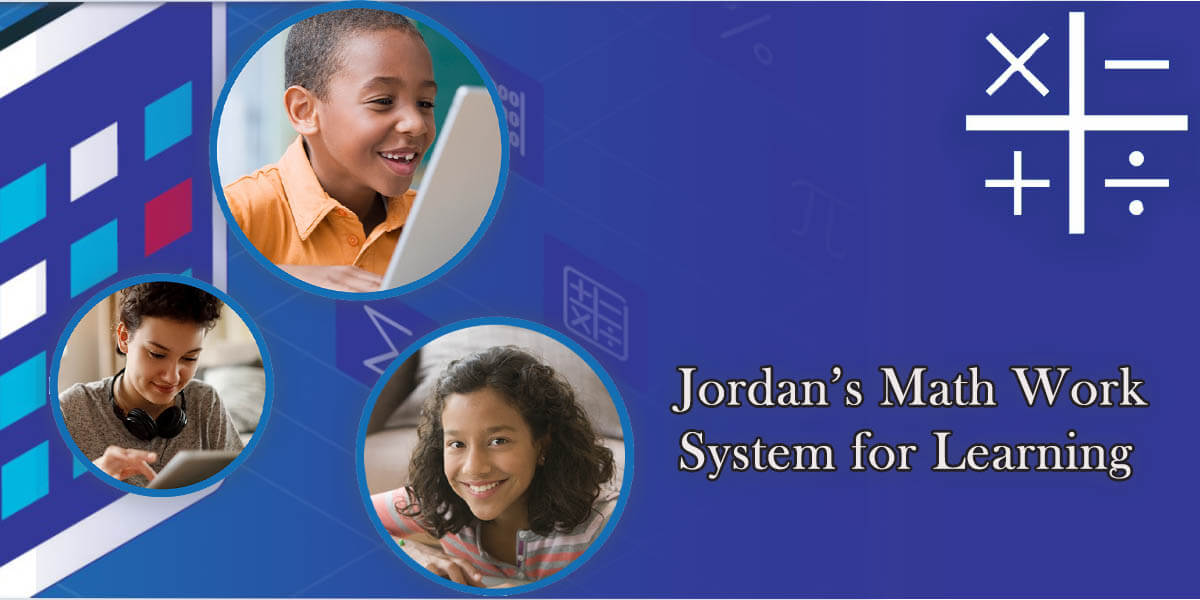Building a solid foundation in foundational math skills is critically important for students’ future success. Research shows that gaps in number sense, counting abilities, and memorizing basic facts in the early grades can negatively impact comprehension of higher-level math concepts. The Jordan Math Work System was developed specifically to address this challenge through its research-backed, mastery-focused approach to teaching numeracy.
This comprehensive guide will explore the Jordan Math Work philosophy, key principles, and proven lesson structure. We will examine its research basis and how the sequential learning progression builds students’ math abilities. We will also provide many practical implementation tips and examples teachers can use to maximize classroom benefits. By the end, you will gain an in-depth understanding of this effective program and how it can help all students establish a solid foundation for lifelong math achievement.
Philosophy and Research Basis
At the heart of the Jordan Math Work is the belief that deliberate, structured practice is essential for students to master foundational math skills and develop automaticity. Dr. Henry Jordan arrived at this conclusion after extensively analyzing how children naturally acquire numeracy abilities over time. His research found that explicit, systematic instruction, cumulative review, and active engagement lead to the most profound and durable learning.

A wealth of educational studies supports this philosophy. Research shows mastery of basic number sense in early grades correlates with later math performance. It also confirms that more than simply exposing students to concepts is needed – they need regular opportunities to apply and reinforce learning through practice. Dr. Jordan’s system incorporates these research-validated principles into a highly effective lesson structure and learning progression.
Pilot implementations provided additional evidence for the Jordan Math Work approach. Classrooms using the daily lessons and sequential skill-building saw dramatic gains, particularly for students who previously struggled. Data analysis found significant improvements in number recognition, counting proficiency, memorization of basic facts, and overall math achievement scores. The program’s balanced challenge and support enabled all students to experience success, build confidence, and lay a strong foundation for future growth.
What is the Importance of Jordan Math Education
Mathematics is more than simply numbers and equations; it is a method to think. It gives a framework for seeing patterns, interpreting data, and making sound judgments. A solid math foundation provides students with useful abilities relevant to a variety of fields, including finance, engineering, and problem solving in everyday circumstances. Math education helps kids develop logical thinking, spatial awareness, and numeric literacy, preparing them for future success.
What is the Approach Followed by Jordan Math Education?
The Jordan Math Work distinguishes out for its student-centered approach, which emphasizes active participation and practical applications. Instead of mindless memorizing, kids are taught to think critically, examine issues, and devise innovative solutions. The strategy focuses on the following essential aspects:
Student-centered Learning: Jordan Math Work puts students at the center of the learning process. It acknowledges that each student has distinct abilities and learning styles and tailors training to fit their requirements.
Real-World Application: Connecting math ideas to real-life situations improves students’ learning and encourages them to use their knowledge outside of the classroom. The Jordan Math Work uses real-world examples and projects to explain math’s practical application.
Critical Thinking and Problem Solving: The Jordan Math Work encourages students to approach issues analytically, think critically, and experiment with various answers. This strategy encourages autonomous thought and perseverance in the face of adversity.
Tailored Instruction: Recognizing that kids learn at varying rates and preferences, the Jordan Math Work offers personalized instruction. This personalized method allows students to develop a strong math foundation at their own speed.
Lesson Structure and Components
The cornerstone of the Jordan Math Work is its consistent, 30-45 minute daily math lessons. Each session follows the same predictable routine to maximize focus on learning:
Warm-Up (5 minutes): Whole-class review of previously learned facts/skills through flashcards, games, etc. This brief primer activates prior knowledge and engages students.
New York (15-20 minutes): Step-by-step demonstration of a new concept by the teacher using visual models and thinking aloud. Students then do independent practice problems with support as needed.
Work Time (15 minutes): Students complete math worksheets reinforcing current skills and reviewing past topics. Teachers can provide small group instruction during this period.
Sharing (5 minutes): Review answers and explanations of strategies/thinking. Students share their approaches to building mathematical discourse. Mistakes are learning opportunities.

This consistent structure allows maximum time on new material and practice while maintaining student engagement. Short mini-lessons prevent cognitive overload, and the layered approach supports mastery of foundational skills over time.
Classroom Implementation Best Practices
For schools to fully realize the benefits of the Jordan Math Work, teachers must implement the daily lessons and learning progression with fidelity while still allowing flexibility. Some research-backed best practices include:
Following the consistent lesson routine and structure as the core math instructional period approach. You are grouping students heterogeneously to support peer learning and differentiation of instruction and incorporating manipulatives, visual models and real-world examples to engage multiple modalities.
Monitoring individual student progress frequently to determine optimal skill pacing. Providing remediation, enrichment or alternative activities through small groups as needed. Celebrating effort, perseverance and progress over “right answers” to build confidence. Involving families in reinforcing skills through take-home work and communication. Using ongoing assessment data to inform future lesson planning, grouping and interventions. Providing ongoing teacher training and support to ensure high-quality implementation.
With its evidence-based approach and flexibility, the Jordan Math Work empowers both students and teachers for math achievement and enjoyment when implemented well. Its success depends on fidelity to best practices.
Read More: BuzzMath – Differentiated Learning For All Students
Developing Early Numeracy Skills
Let’s examine how the Jordan Math Work builds students’ foundational number sense from Kindergarten through 2nd Grade. These early years lay the critical groundwork for future math comprehension. Daily lessons focus on:
Kindergarten: Students develop one-to-one correspondence by moving tokens one by one onto number lines and cards. They practice writing numbers, count objects accurately, and start recognizing numeric patterns. Addition and subtraction concepts within 5 are introduced using physical objects.
1st Grade:
Students further counting skills up to 100, learn the concept and sequence of place value to the hundreds place, and recognize numbers in digit and word form. Concepts of addition and subtraction are strengthened through daily practice with facts within 10. Students also learn about money and telling time to the hour.
2nd Grade:
Students gain automaticity with addition and subtraction facts within 20 through daily practice. Multi-digit addition and subtraction are taught using visual models like base-ten blocks. Measurement, geometry and fractions are also introduced. Students apply skills to real-world word problems.
This building block approach from concrete to abstract ensures students internalize critical early number sense before advancing to more complex applications. Daily structured practice reinforces each new skill until automaticity is achieved.
Developing Operational Skills

As students progress through 3rd-6th grades, the Jordan Math Work focuses on helping them master more advanced math operations and applications. Some examples include:
3rd Grade:
Daily lessons concentrate on automatic recall of multiplication and division facts. Students learn to represent fractions as parts of a whole or region and compare their sizes. They also collect and analyze data using bar graphs, pictographs and line plots. Word problems are a significant area of focus.
4th Grade:
Students develop proficiency with multi-digit multiplication and long division. Place value is extended to millions. Fractions are added and subtracted, and decimals are introduced. Perimeter, area and angles are also covered. Real-world word problems integrate multiple skills.
5th Grade:
Students gain fluency with all four operations on multi-digit whole numbers and decimals up to the hundredth place. Fractions and decimals are compared and ordered on a number line. Ratios, proportions and percentages are introduced. Volume, three-dimensional shapes and graphing are also taught.
6th Grade:
Students learn about ratios, rates and unit rates. Positive and negative integers are covered. Expressions and equations are explored in depth. Geometry focuses on angles, triangles, quadrilaterals and formal proofs. Statistics and data analysis culminate previous learning.
This progression ensures students have internalized foundational skills before tackling more complex operations and applications. Daily practice reinforces new concepts until automaticity is achieved across all grade levels.
Developing Higher-Order Thinking
In addition to building computational fluency, the Jordan Math Work also helps students develop higher-order thinking skills. Daily lessons incorporate:
Problem-Solving: Word problems require analyzing situations, devising strategies and checking answers. Visual models, diagrams and step-by-step thinking are encouraged.
Logical Reasoning: Students explain their approaches, look for patterns and relationships, and justify solutions. Mistakes prompt rethinking instead of right/wrong labelling.
Communication: Sharing sessions allow students to describe strategies verbally, ask clarifying questions respectfully and critique peer reasoning.
Flexibility: Students learn multiple methods for solving problems and are encouraged to explain their choice of approach.
These higher-level skills are just as critical as basic proficiency. The Jordan Math Work daily lessons, cumulative review and emphasis on mastery naturally encourage the development of conceptual understanding alongside computational skills.
Conclusion
Jordan Math Work System follows an innovative approach to polish the accounting and mathematical skills of the students from their base. This platform is a highly beneficial for pre-school pupils who are looking to develop their core mathematical and analytic skills. Hopefully, this article has provided you useful insights on how this educational platform is useful for developing knowledge of mathematics.




